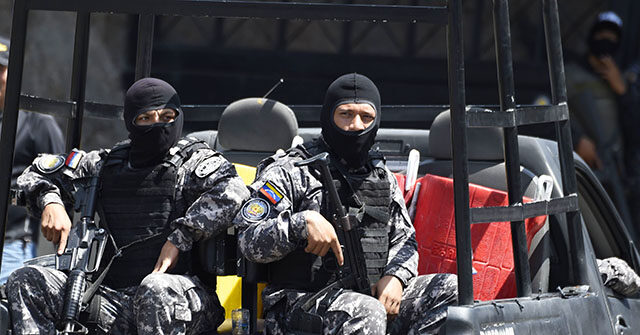A recent joint investigation by Venezuelan media and civil organizations has exposed how officials within the socialist regime have weaponized social media to target dissenters following the controversial presidential election held on July 28. Collaborating outlets, including Crónica Uno and organizations such as Monitor Civil and Cazadores de Fake News, revealed a systematic campaign that identifies opposition figures as “enemies” and “terrorists.” The report indicates that the government, loyal to Nicolás Maduro, has employed tactics like “Operation Knock Knock” to arrest dissidents and force them into making coerced video apologies, juxtaposing their images with chilling music from Hollywood thrillers. Following the fraudulent elections, where Maduro claimed victory without credible evidence, the regime intensified its crackdown on protesters, raising alarming human rights concerns.
The investigation documented at least 12 cases of individuals who faced digital harassment and public exposure. These activists, many participating in protests or serving as electoral observers, found their personal information disseminated widely on various social platforms linked to the Maduro government. Among the cases reviewed was “Raúl,” who claimed he was unjustly labeled a criminal after being publicly identified through social media as a “guarimbero leader,” a derogatory term used to vilify anti-regime protesters. “Raúl” recounted a terrifying experience of paranoia and fear for his safety after being targeted online, leading to his eventual imprisonment. His story mirrors those of numerous other political leaders and civilians subjected to the same persecution tactics, with additional documentation confirming many cases of ongoing detainment and exile.
The report indicated that these public campaigns of persecution were part of a coordinated effort rather than isolated acts by rogue supporters of the regime. Marino Alvarado, a human rights advocate, labeled this strategy as “state terrorism,” signifying a systematic violation of civil rights that allows law enforcement to act arbitrarily against suspected dissenters. The majority of this digital targeting originated in specific Telegram groups, notably one named CazaGuarimbas, which served to rally supporters in hunting dissenting voices. The evidence suggests a direct link between the discussions in these groups and the actions taken by law enforcement agencies, demonstrating a well-organized plan to silence opposition.
The investigation further detailed the expansion of these tactics onto various platforms, using over 30 TikTok accounts to circulate alarming videos that compromised the personal safety of targeted individuals. This content spread rapidly, with 101 accounts and nearly 400 posts documented across multiple social media sites. Maduro’s regime has also created an app called VenApp, ostensibly to allow users to report dissidents, revealing a stark intention to surveil and suppress any opposition. Public backlash led to the app’s removal from major app stores, illustrating a significant resistance among Venezuelan citizens against the regime’s desperate attempts at surveillance and censorship.
Internationally, the Maduro government’s claims regarding election integrity have been met with substantial skepticism. No legitimate evidence has corroborated Maduro’s declared victory, with opposition figures highlighting stark discrepancies in reported votes. The international community, including human rights organizations and foreign governments, has largely dismissed the results, considering them manipulated and illegitimate. Venezuelan electoral authorities have not provided voter data, leading to widespread distrust in the election’s credibility.
The aftermath of the election has also been marked by significant violence and unrest, with reports from the United Nations indicating that at least 27 individuals died during post-election protests and over 2,400 people were detained, including many minors subjected to torture and false accusations of terrorism. This escalating crisis underscores the Maduro regime’s deepening authoritarianism and hostility toward dissent, prompting urgent calls for international attention and intervention. The findings from the investigation reveal a troubling portrait of state-led persecution mechanisms, fueled by technology and social media, that threaten the basic human rights of Venezuelan citizens.

